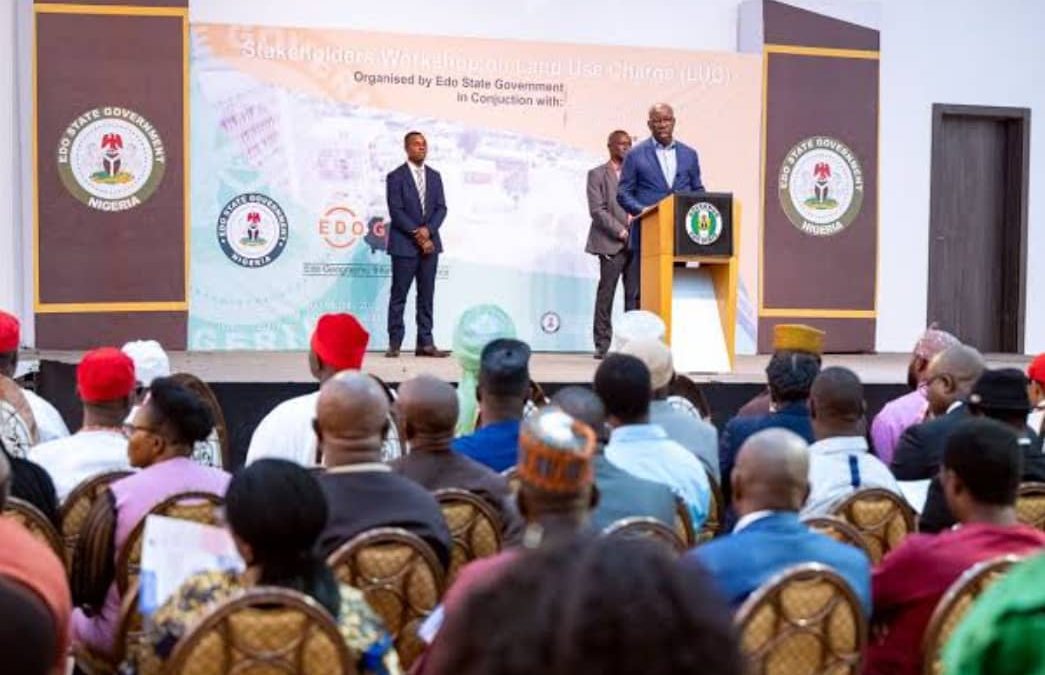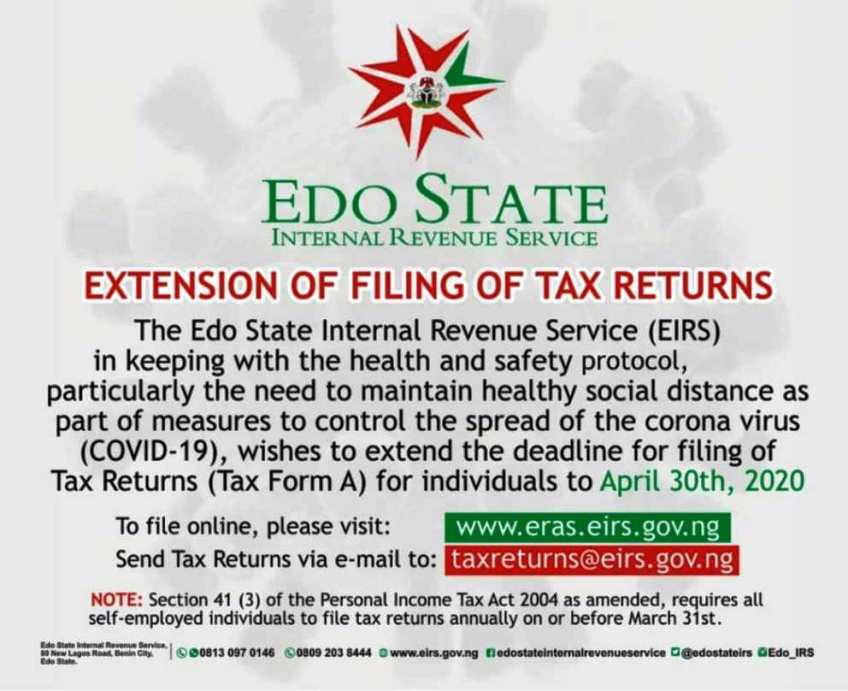The Edo State Governor, Mr. Godwin Obaseki, has met with stakeholders including professional and women groups, Civil Society Organizations (CSOs), traditional rulers and the business community in the State and sought their cooperation and collaboration on the implementation of the State’s new property tax to ensure the government continues to meet its obligation to the citizenry.
This was during a stakeholders’ workshop on the state’s new Land Use Charge Law, themed: “Joint Implementation of LUC by State and Local Governments,” held at the New Festival Hall, in Government House, Benin City.
He said the land use charge is property tax meant for property owners, which must be paid, noting: “The tax is not for poor people. Those that don’t have a property have no business with such a tax.”
The governor continued: “We want your cooperation as we have not done all the roads needed. We can only do more when we have more money. There is no double taxation in Edo. This is not double taxation on property in the State. It is not much; you can pay once.”
He further noted: “You will agree that since we came in 2016, the rate of development has increased. We have built up to 1,500km of roads in Edo State. The ones that are bad are not State roads, but Federal Government roads. If they are our roads and I have the authority, I will do them. When I want to build some roads, they say they have already given it out on contract.”
The governor stated that the citizenry can support the government in executing its mandate by paying their taxes, noting that more tax revenue would boost the government’s capacity to deliver durable infrastructure.
Obaseki said his administration will not fold its hands and lament without working for the people, adding, “This property tax is the most important way to get revenue to continue development in the State. You can’t pay tax without earning something. Tax is like tithes in the scripture and it’s a contribution to the government. Without tax there cannot be government and development.”
On the administration of the tax, he said: “If you have a property, you pay just one tax for your property. The local government and the state government have a mechanism on how to share the tax. This tax is not collected in cash but it’s paid straight into the government’s account. We must account for how we spend this revenue.”
He further stated: “I have met with traditional rulers. I told them that from our Internally Generated Revenue (IGR), we will take money to feed those who don’t have – the poorest of the poor in the State. We can do so much in Edo if we have the revenue.”
On accountability and transparency, he said that the government will do the right thing, noting: “I want to appeal to you all to trust the government. If you don’t pay for something, you have no right to ask how the money collected is being used. What we try to do in the last few years is to address the issue of accountability. We own this state and must contribute to the development of the State.
“The World Bank trusts the State and has continued to support us through various ways. So why will our people not trust us? The World Bank is giving us money directly and they can only give money to those they trust. This property tax law is only for people who have land and property and are making money from them.”
The Managing Director of Edo Geographic Information Service, (EdoGIS), Osaro Grace Aihie, said the Land Use Charge is a consolidation of all the land-based rates and charges payable in Edo State.
She noted that the charge is on real properties like land, buildings, structures, noting that the new law allows the local government areas in the State to handle tenement rates while the State is in charge of property tax and ground rent.


